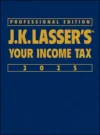Inflation Adjustments Cut Your Taxes and Increase Your Write-Off Opportunities
Even if your income is no higher in 2008 than it was in 2007, you can expect your tax bill to be lower. Why? Every year, cost of living adjustments to various tax items means you'll pay less than you did in the prior year on the same amount of income. Also, because of inflation adjustments, you may qualify for tax brackets from which you were barred in 2007. Here are some changes that are sure to help you save taxes.
Basic tax items
The tax brackets, standard deduction amounts, and personal exemption have all been increased for 2008. Compare some of the limits for 2008 with the limits in effect for 2007.
|
Item |
2008 |
2007 |
||||||||||||||||||||||||||||||||||||||||||||||||||||||||||
|
|
|
||||||||||||||||||||||||||||||||||||||||||||||||||||||||||
|
|
|
||||||||||||||||||||||||||||||||||||||||||||||||||||||||||
|
Personal exemption |
|
|
||||||||||||||||||||||||||||||||||||||||||||||||||||||||||
Example: If you are single (under age 65), no dependents, and claim the standard deduction, and have wages of $42,000, your tax bill in 2008 is $4,606.25, or $130 lower than it was for 2007 ($4,736.25).
Kiddie tax. The amount of a child's unearned income that escapes the kiddie tax (that is, is taxed to the child at the parent's highest rate) has increased to $1,800; in 2007 it was $1,700.
Eligibility for tax credit
The modified adjusted gross income (MAGI) limits on claiming various personal tax credits have been increased. This means you may be eligible for credits this year even though your MAGI precluded you from claiming them last year.
- Adoption credit. The MAGI limit on eligibility to claim a full credit in 2008 is $174,730 (up from $170,820 in 2007). The amount of the credit has also increased to $11,650 (up from $11,390 in 2007).
- Education credits. The MAGI limit on eligibility to claim a full credit in 2008 is $48,000, or $96,000 on a joint return (up from $47,000, and $94,000, respectively, in 2007). The amount of the credit is also increased to a maximum of $1,800 per eligible student for the Hope credit (up from $1,650 in 2007); the lifetime learning credit is unchanged, at $2,000 per family.
- Retirement savers credit. In 2008, joint filers can claim a credit as long as MAGI does not exceed $53,000; the limit in 2007 was $52,000. For singles, the limit in 2008 is $26,500; the limit in 2007 was $26,000.
- Earned income credit. Some credit can be claimed as long as adjusted gross income in 2008 does not exceed $36,995 for joint filers with one qualifying child, or $41,646 with two or more qualifying children (up from $35,241 and $39,783, respectively, in 2007). For singles, the 2008 AGI limit for claiming some credit is $33,995 for one qualifying child, or $38,646 for two or more qualifying children (up from $33,241 and $37,783, respectively, in 2007).
Other tax items
The MAGI limit on eligibility to deduct student loan interest up to $2,500 has increased in 2008 to $55,000, or $115,000 on a joint return.
Transportation fringe benefit limits have increased in 2008 so that free parking can be valued at up to $220 (it was $215 in 2007). Monthly transit passes are tax free up to $115 in 2008; the limit in 2007 was $110.
The annual gift tax exclusion that exempts gifts from gift tax remains unchanged in 2008 at $12,000, the same exclusion amount in 2007.
Alternative minimum tax
As you reduce your regular tax through rate changes and other tax item adjustments, you potentially increase your exposure to the alternative minimum tax (AMT), a parallel tax system with its own tax rules. If tax under the AMT is higher than tax under the regular tax system, you pay the higher amount.
Stock dividend
A distribution of additional shares of a corporation’s stock to its shareholders.



